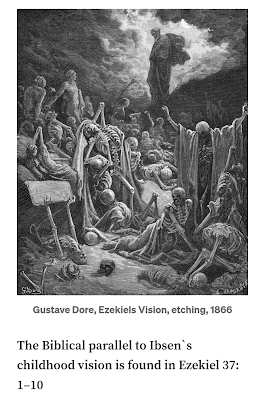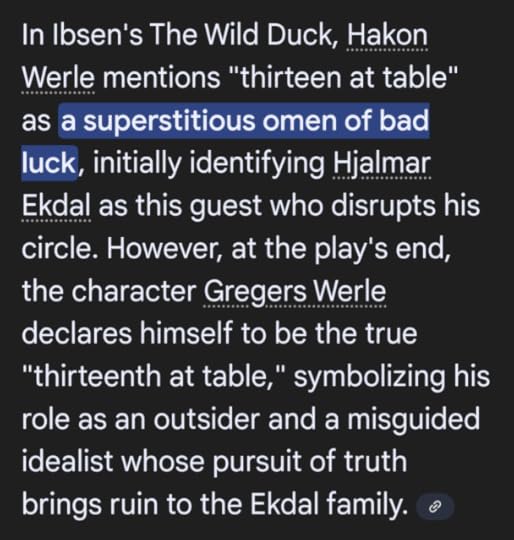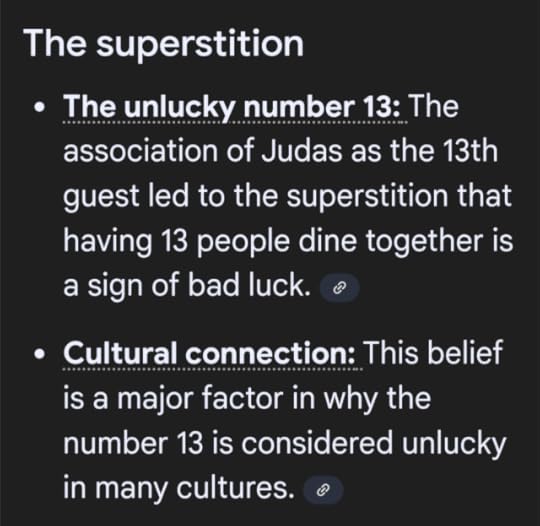R.L. Swihart's Blog, page 2
September 19, 2025
Shyness & Dignity
What had made a young man with such hunger for life throw himself into the study of philosophy? Do those with the greatest zest for life often choose to study philosophy? If that is so, why do the ones with the greatest hunger for life choose human thought as their field? Instead of, say, studying to be engineers? When Elias Rukla thought about this, it struck him that those of his classmates from high school who had begun to study engineering were not noted for any exceptional zest for life, even though they had chosen a profession that would set them up for becoming men of action. They were the ones who would construct and build, get the wheels to roll and the machines to run, and make the people under them obey their orders, because unless they were obeyed, the wheels would not turn, the machines not run, and the buildings not be built, one might say. But on reflection, Elias found that the classmates who had now become engineers possessed no particular appetite for life at all, they were merely good in school, but essentially quite unimaginative, well, quite conformist, and that was true about all of them, without exception, Elias thought. The only trace of imagination he had discovered among these would-be engineers was a general predilection for telling jokes and singing songs from the student revues in Trondheim. But Johan Corneliussen neither told jokes nor sang ditties from student revues. He was simply stuck on life. And he had plunged into a demanding study of the great philosopher Immanuel Kant, and the brief reports he had leaked to teachers and fellow students about his discoveries had aroused their highest expectations.
September 18, 2025
Shyness & Dignity
They stormed into Krølle, which was Johan Corneliussen’s favorite restaurant at the time, five minutes before the downhill race started. This basement restaurant had a TV. It was enthroned on top of a cabinet on the wall. They sat down at one of the tables for two, Johan in such a way that he could look straight at the TV set, Elias directly across from him, so that he had to turn around to look at the same TV. The downhill race in St. Anton. One after another they turned up on the screen, in helmets and Alpine gear, before they threw themselves down the mountainsides of (or among) the Alps. Heini Messner, Austria. Jean-Claude Killy, France. Franz Vogler, West Germany. Leo Lacroix, France. Martin Heidegger, Germany. Edmund Husserl, Germany. Elias Canetti, Romania. Allen Ginsberg, USA. William Burroughs, USA. Antonio Gramsci, Italy. Jean-Paul Sartre, France. Ludwig Wittgenstein, Austria. Johan Corneliussen knew the strengths and weaknesses of all the racers and continually informed Elias that now, now, he had to watch out, for there, on that slope, Jean-Paul Sartre will have some problems, whereas now, just look how Ludwig Wittgenstein’s suppleness manifests itself in that long flat stretch, and look how the Romanian Canetti saves tenths of seconds by shortening that turn, almost as nicely as the Frenchman Jean-Claude Killy.
September 16, 2025
R L Swihart's Poetry and a Few Old Book Reviews
Perhaps I'm a bit late to the party, but today I thought I'd mention three book reviews that have been penned (quite generously) about some of my books throughout the years.
The first two are online, so you can easily follow the links (see below): both were written by the author and co-publisher (with his wife Isabel) of the online journal Off Course, Ricardo Nirenberg.
The first review Ricardo wrote was for my very first book: The Last Man (published in 2012). He writes that it's hard to decide which poem in the book is his favorite, but finally settles on "Algorithm" -- an early poem that I wrote while I was teaching high school mathematics.
"It is hard or impossible to decide, yet -- for sentimental reasons, as the song goes -- I think one of my favorite pieces in this book is titled ALGORITHM." And then he includes the entire poem:
ALGORITHM
Take any segment and drop out the middle third. Take the remaining thirds and repeat the process, i.e. take each of the two segments and drop out the middle third. A million iterations should be sufficient.
Sometimes I find it helps. I applied the algorithm to last April and got impossible results. I placed all the pieces in two Ziploc bags and labeled them accordingly: Gaps and Dust.
Ignoring the gaps, I was able to save a young girl, who’s still learning perspective, a few sleepless nights.
Working with the dust, I created a beautiful mosaic. A sleeping seed is juxtaposed against a small white arm flexing up through black in a plastic cup. A certain kiss, though stuttering, takes on a life of its own. Though borrowed, the arrow Borges launched is still resting on the page.
*
In rereading this old poem (which I haven't done in years), I've noticed that I still used "full stops" (periods) at strophe's end (which, probably for spacing reasons, couldn't be indicated in the Off Course version -- but I've included them in the version above). Anyway, I eventually ditched that practice.
Ricardo doesn't stop after quoting the whole poem. He takes time and energy to give "a few glosses," and seems to enjoy himself along the way:
"Perhaps here a few glosses are called for. The “Algorithm” piece refers to the Cantor set, which can be described as the set of real numbers between 0 and 1 whose ternary expansion (i.e. their expression as a sequence of the digits 0, 1 and 2) does not contain the digit 1. The set is famous because it can be put into one-to-one correspondence with the whole set of real numbers, yet its measure is zero, as Georg Cantor showed. Any math major would (or should) know that, and know how to prove it; but I had never before seen it applied to last April, to the continuum formed by each and every one of the time instants of the cruelest month. Impossible results, as Swihart says. The intervals removed are the Gaps; what remains in the Cantor set is the Dust. And Gaps and Dust, two fraught words, are the twin principles of life, or, if you wish, what remains of it after it’s done. You may weave the rest ad libitum in your imagination, but I would like to add that Borges’ borrowed arrow was borrowed from Zeno the Eleatic, and the fact that it is still resting on the page has a lot to do with the old paradoxes and the new conundrums of the continuum, one of which is the Cantor set. So “Algorithm” is a good place to start taking a measure of the breadth and depth of Swihart’s poetic universe."
Thank you so much, Ricardo Nirenberg.
Ricardo's entire review of my book, The Last Man, can be read here:
Ricardo Nirenberg's Review of The Last Man
*
Ricardo Nirenberg also did a gracious and fantastic review of my second book, Matman & Testudo (published in 2018).
He starts off with a word of encouragement to the prospective reader, then a word or two re what he sees as my "method":
"These poems are not easy fare, but they repay the reader's effort. Swihart relies on vivid images to catch and save the accidental, and then memory and thoughtfulness are on the ready to transform it into something that simply had to be."
He then dives right into a poem of his choosing:
THE TWO MINDS OF VLADIMIR SALDI
There’s the voice of reason: All poets slip into the ridiculous
re the underpinnings of poetry (cf. Coetzee on Brodsky)
Which doesn’t negate the call: In this instance the mantic,
Mosaic fire the sun sends across the water
The girl with the gecko tattoo stops jogging in order to stretch on the canal’s white railing
*
And then, as is Ricardo's wont, he gives a few words of explication and insight:
"I don't know if all poets slip into the ridiculous when they try to explain the nature and function of their art, but many who try do slip, and Swihart gives the example of Joseph Brodsky, who pretended that he, the poet, was but a vehicle, a voice—a sacer vates—of the whole history of poetry. For which Coetzee took him to task on the pages of the NYRB, about twenty years ago. Nevertheless, knowing the risk, Swihart hazards to identify what moves him to the poem ("in this instance"), and it turns out that it is "the mantic, Mosaic fire the sun sends across the water." That's quite a line (well, a bit more than a line). Mantic like in praying mantis, mántis a Greek word that appears early in the Homeric Iliad, when Agamemnon calls the seer Kalkhas mántis kakôn, seer of evils. Indeed, what can be more mantic, more akin to a seer, than the sun and its fires? "Mosaic" means, I think, law-giving. Why can't it be something formed out of small pieces of marble or suchlike? Because of the capital M, since, as you can see, Swihart does not capitalize the first letter in a line that is not at the beginning of a stanza. So Mosaic, as in Moses."
Again, thank you so much, Ricardo Nirenberg.
Ricardo's entire review of my book, Matman & Testudo, can be read here:
Ricardo Nirenberg's Review of Matman & Testudo
*
And now onto the last old review (from 2021): this one on my third published book of poetry, Woodhenge (published in 2020), which is a bit of a hybrid: 50 "selected" poems from the earlier part of my career, 50 newer poems. This review was written by another author, Ivan Head, poet and frequent contributor to Quadrant Magazine, out of Australia.
September 15, 2025
Dag Solstad's Shyness & Dignity
In the middle of Act IV. Where Mrs. Sørbye appears in Ekdal’s home and announces that she is going to marry Werle, the merchant, and where Ekdal’s lodger Dr. Relling is present, and he read (himself, instead of asking one of his pupils to do it, which he did at times for the sake of appearances, but he preferred to do it himself): “Relling (with a slight tremor in his voice): This can’t possibly be true? Mrs. Sørbye: Yes, my dear Relling, indeed it is.” As he was reading he felt an unendurable excitement because all at once he thought he was on the track of something to which he had not previously paid any attention when trying to understand The Wild Duck. For twenty-five years he had gone through this drama by Henrik Ibsen with eighteen-year-olds in their last year of high school, and he had always had problems with Dr. Relling. He had not fully grasped what he was doing in the play. He had seen that his function was to proclaim elementary, unvarnished truths about the other characters in the play, well, actually about the entire play. He had seen him as a kind of mouthpiece for Ibsen and had been unable to grasp why that was necessary. Indeed, he had been of the opinion that the figure of Dr. Relling weakened the play. What did Henrik Ibsen need a “mouthpiece” for? Did not the play speak for itself? he had thought. But here, here there was something. Henrik Ibsen lays his hand on his minor character Dr. Relling and, within parentheses, makes him speak with a slight tremor in his voice as he asks Mrs. Sørbye if it is really true that she will marry Werle, the powerful merchant. For a moment, Henrik Ibsen pushes Relling into the drama he otherwise exclusively comments upon with his sarcasms. There he is, caught in his own bitter fate as a perpetual, unsuccessful admirer of Mrs. Sørbye, throughout her two marriages, first to Dr. Sørbye, now to Werle, and for a brief moment it is his fate, and nothing else, that is frozen into immobility on the stage. The moment of the minor figure. Both before and after this he remains the same, the man who reels off those smart lines, one of which has acquired an immortal status in Norwegian literature: “If you take the life-lie away from an average person, you take away his happiness as well.”
Ibsen: The Thirteenth at the Table
Ibsen: The Wild Duck: Life-Illusion
Relling.
So much the worse for him. Rob the average man of his life-illusion, and you rob him of his happiness at the same stroke. [To HEDVIG, who comes in from the sitting-room.] Well, little wild-duck-mother, I'm just going down to see whether papa is still lying meditating upon that wonderful invention of his.
Ibsen and "The Claim of the Ideal"
September 14, 2025
The Childhood Dream of Ibsen

Rereading Ibsen's Wild Duck as a prologue to rereading Dag Solstad's novel Shyness & Dignity, and came across this childhood dream that the young Ibsen supposedly had. The Gustave Dore etching was a bonus.;)
September 7, 2025
Klaus Mann's Turning Point
From the beginning (first chapter) of Klaus Mann's autobiography:
Memories are made of peculiar stuff, elusive and yet compelling, powerful and fleet. You cannot trust your reminiscences, and yet there is no reality except the one we remember. Every moment we pass through derives its meaning from the preceding one. There would be no present nor future if the past were blotted out in the minds of men. It is our capacity for recollection which stands between us and chaos — a rather fragile bulwark, we must admit.
September 6, 2025
Tonio Kroger
The music began; the couples bowed and advanced and interchanged. The assistant postmaster directed the dance; great heavens, he was actually directing it in French, and pronouncing the nasal vowels with incomparable distinction! Ingeborg Holm was dancing just in front of Tonio Kröger, in the set nearest to the glass door. She moved to and fro in front of him, stepping and turning, forward and backward; often he caught a fragrance from her hair or from the delicate white material of her dress, and he closed his eyes, filled with an emotion so long familiar to him: during all these last days he had been faintly aware of its sharp enchanting flavor, and now it was welling up once more inside him in all its sweet urgency. What was it? Desire, tenderness? envy? self-contempt? . . . Moulinet des dames! Did you laugh, fair-haired Inge, did you laugh at me on that occasion, when I danced the moulinet and made such a miserable fool of myself ? And would you still laugh today, even now when I have become, in my own way, a famous man? Yes, you would—and you would be a thousand times right to do so, and even if I, single-handed, had composed the Nine Symphonies and written The World as Will and Idea and painted the Last Judgment—you would still be right to laugh, eternally right . . . He looked at her, and remembered a line of poetry, a line he had long forgotten and that was nevertheless so close to his mind and heart: “I long to sleep, to sleep, but you must dance.” He knew so well the melancholy northern mood it expressed, awkward and half-articulate and heartfelt. To sleep . . . To long to be able to live simply for one’s feelings alone, to rest idly in sweet self-sufficient emotion, uncompelled to translate it into activity, unconstrained to dance—and to have to dance nevertheless, to have to be alert and nimble and perform the difficult, difficult and perilous sword-dance of art, and never to be able quite to forget the humiliating paradox of having to dance when one’s heart is heavy with love . . .






